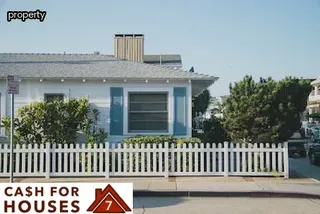A squatter is someone who takes up residence in a property without the permission of the legal owner. This type of occupation is often seen as illegal, since it involves taking possession of someone else's property without their consent.
Squatters usually do not pay rent or follow other legally binding obligations such as lease agreements. In some cases, squatters may even take more drastic measures to secure the property, such as changing locks and preventing the legal owner from entering the premises.
Although squatter's rights vary greatly from state to state, California does recognize certain protections for those occupying another person's land or home without permission. Such protections may include being able to stay on the property for a certain period of time before being evicted, or even having certain forms of legal ownership recognized by courts.
It is essential that individuals exploring their squatter's rights in California understand local laws and regulations in order to avoid potential criminal charges or civil disputes with landlords and homeowners.

In California, the right to occupy a property without permission has been an issue for many years. Squatting is the practice of taking up residence in an abandoned or unoccupied area of land or building without permission from the owner.
There are several reasons why people choose to squat, such as not having access to affordable housing or wanting to take advantage of rental prices that have become too expensive. Additionally, some people may take up residence in an area due to discrimination or displacement from their original home.
People may also choose to squat in order to protest against certain laws and policies. These range from police brutality and immigration laws, to environmental issues and zoning regulations.
Regardless of their individual motivation, it is important that those considering squatting understand what the law says about their rights and how they can protect themselves if they decide to go down this route.
Squatters rights are a complex legal concept that is based on long-standing common law principles. In California, these rights can be difficult to define, as there is no one-size-fits-all definition of the term. Generally speaking, squatter's rights allow an individual who has occupied another person's property without permission or payment for a certain period of time to gain legal ownership of that property.
This is known as 'adverse possession.' The amount of time necessary to gain ownership varies from state to state and between jurisdictions. In California, the squatting party must occupy the property continuously for five years in order to gain title through adverse possession.
During this period, they must also pay all applicable taxes and demonstrate clear intent of ownership by making improvements or maintaining the property in good condition. Additionally, they must show actual possession (i., live on the premises) and open use (i.
, not secretly occupy it). There are many nuances and complexities associated with squatter's rights in California, so it is important to understand the relevant laws before attempting to exercise them.

In California, establishing squatter's rights can be an arduous process. Squatting is legally defined as the act of occupying an abandoned or unoccupied area of land or property without the consent of its legal owner.
In California, squatters may acquire legal possession over a property if they can prove that they have resided there for a continuous period of time and made significant improvements to it. To gain squatters' rights in California, one must demonstrate that they are indeed occupying the property by showing evidence of regular use, such as mail delivery and utility bills in their name.
To be successful in this regard, squatters must also show that they've taken steps to improve the property, like investing in repairs or making necessary upgrades. It's important to note that in order for squatter's rights to be established, the person living on the property must have no knowledge that they're trespassing and must have acted as if they owned it.
Additionally, it's important to remember that even if a squatter has managed to gain legal possession over a property, they may still face eviction proceedings initiated by the rightful owner at any given time.
Legally claiming squatters rights in California requires a person to meet certain criteria and follow the right steps. Squatters must establish that they have lived on the property for an extended period of time and that they have made improvements to it, as well as paid any applicable taxes or fees.
To prove their residency, squatters can provide evidence such as utility bills and other documents showing that they have been living on the property. Additionally, squatters may need to provide proof of payment for improvements, taxes, and fees related to the property.
The law also requires that squatters must be openly inhabiting the property and not keeping it secret from its rightful owner. If all these criteria are met, then a squatter may be able to claim legal rights over a piece of property and eventually possess it completely.

Establishing squatter's rights in California has many benefits. For one, it allows people to secure housing without high costs.
In most cases, a person can move into a property they have not purchased and establish residency without paying the initial cost of purchasing or renting the property. This means that people who are facing financial hardship can find shelter more easily than if they had to purchase or rent a home.
Residents also gain legal rights to the property after a certain period of time, meaning their stay is more secure and they do not have to worry about being evicted. Squatters' rights also provide an additional layer of protection for the original owner of the property, as squatters are required by law to maintain and repair any damages done to the property while they live there.
As such, both parties benefit from establishing squatter's rights in California.
It is important to understand the difference between a disclaimer deed and a quit claim deed when discussing squatter's rights in California. A disclaimer deed is an instrument used to disclaim any interest in real property without adversely affecting third parties.
It can be used to transfer title from an owner of a property who does not want to be responsible or liable for the actions of others on that property. A quit claim deed, on the other hand, is used to transfer title from one person to another without warranties or covenants as to the status of title.
In California, a quit claim deed can be used by squatters as a way to document their possession and occupancy of a piece of land. This effectively gives them legal standing when claiming squatter's rights over the land, which can include exemptions from certain taxes and costs associated with ownership.
Understanding both types of deeds is essential for anyone looking to explore squatter's rights in California.

Landlords must always provide full disclosure of their rights and obligations under California law when entering into a tenancy agreement. This includes several important pieces of information: whether the landlord is registered with the state, if the property has been inspected by local authorities, the extent of any repairs or maintenance that have been made to the property, and any applicable zoning restrictions.
Landlords must also make clear what type of security deposits they will require from tenants and how much it will be. It is important for landlords to disclose any rights that tenants may have to squat on their property, which could include specific rules about how long a squatter can stay on the premises or whether they are allowed to build structures on the land.
Lastly, landlords must ensure that all rental agreements comply with local laws regarding tenant protections and fair housing practices.
Property owners in California have the right to prevent rental of their property to others, as long as they follow certain guidelines under the state's property laws. Under California law, squatters who occupy a residence without permission from the owner and without paying rent are considered trespassers.
If a trespasser is occupying a home without permission, the owner must provide written notice before taking any legal action. This notice must be served on the trespasser and should specify that they must vacate within three days or face legal action.
If tenants fail to do so, the property owner can take them to court for eviction proceedings. Additionally, if a tenant has been living in a property for more than thirty days, they may have legally established tenancy rights which can make it more difficult for an owner to evict them.
It is important for property owners to familiarize themselves with California's laws regarding squatters' rights in order to protect their interests and ensure that any tenant agreements are legally binding.

If you own property in California, it is important to understand your rights as a property owner so that you can protect yourself from unwanted squatters. One of the most effective ways to prevent squatters is by having a clearly posted no trespassing sign on all entrances and exits of the property.
Similarly, if you are renting out your property, it is important to ensure that tenants have signed a lease agreement that clearly outlines their obligations and time frame for tenancy. Additionally, if any uninvited individuals are found on the premises, contact local law enforcement immediately to have them removed.
It is essential to take cautionary steps such as these in order to avoid potential legal issues that could arise from allowing squatters on private property. Furthermore, be sure to keep accurate records of all repairs and maintenance that has been performed on your property should a dispute with a squatter arise.
Finally, it's always best practice to consult an experienced attorney if you have any questions or concerns about squatting laws in the state of California.
When it comes to evicting unwanted occupants in California, the state has laws in place which protect both the tenant and the landlord. The most common way of evicting an occupant without a lease is through a Three Day Notice to Quit.
This type of notice requires that the tenant vacate the property within three days or face further legal action. Additionally, if the occupant has not paid rent, then a Three Day Notice to Pay Rent may be used as well.
If these methods fail, then it is necessary to take legal action by filing an Unlawful Detainer lawsuit in Superior Court. In this type of case, it is important for landlords to remember that squatters are protected under California law and must be evicted according to those laws.
Furthermore, any retaliatory actions taken against squatters can lead to serious penalties from the court. It is important for landlords to know their rights when dealing with squatters and become familiar with all applicable laws before attempting to remove them from their property.
In California, the amount of time a squatter can occupy a property depends on the specific situation. Generally speaking, it is illegal to squat in an uninhabited residence without permission from the owner or legal tenant.
If you are found to be squatting in a residential property without permission, you may be subject to criminal charges. However, if there is evidence that the squatter has made improvements to the property or has otherwise acted as if he or she is the legitimate occupant, then certain laws may allow for a period of extended occupancy known as “adverse possession”.
Adverse possession requires that a squatter must have occupied the property continuously and openly for over five years and must also have made payments on taxes and/or utility bills during that time. If these requirements are met, then legal title to the property may pass from its original owner to the squatter.
It should be noted that adverse possession does not apply in all cases and should not be considered as carte blanche permission to occupy another person's property without their consent.

Squatting legally in California is possible, but there are certain laws and regulations that you must be aware of before attempting it. In California, squatting rights are protected under a state law known as the Adverse Possession Statute.
This law allows someone to gain legal possession of a property if they have lived on or made use of the land for a specific period of time. If the squatter meets all criteria set out in this statute, the squatting may be considered legal and they may be able to continue living on the property without interference from the owner.
The requirements for claiming squatter's rights in California include continuous occupancy of at least five years and payment of taxes throughout this period. Claimants must also prove that they were unaware that their occupancy was unauthorized, as well as demonstrate intent to possess the property by making improvements or paying for maintenance costs.
Additionally, squatters must provide written notice to neighboring landowners and post signs around the property to inform them of their claim. Squatting can be an effective way to secure housing in California, but it is important to understand all legal requirements before taking any action.
In California, the process of evicting a squatter from a property can take anywhere from several days to several weeks or even months. In order to remove a squatter from a property in California, the owner must first file an unlawful detainer action in court.
The court will then issue an order for the squatter to vacate the premises within a specified period of time, usually between three and five days. If the squatter does not comply with this order, then the landlord must file an eviction lawsuit against them.
During this process, they may be required to provide evidence that they are indeed the rightful owner of the property. Once all paperwork has been filed and reviewed by a judge, the court will then issue an eviction judgment which orders law enforcement officers to forcibly remove any squatters remaining on the premises.
If a tenant is found to have illegally occupied someone else's property, they may face criminal charges as well as civil penalties.
Squatter's rights, or adverse possession, are laws in California that allow a person to gain legal title to another person's property if they have been occupying it openly and continuously for at least 30 days. In California, the law of adverse possession is outlined in Civil Code Section 1008.
This law grants squatters a right to possess the property under certain conditions, such as open and notorious occupancy, actual possession, and good faith payment of taxes on the property. The squatter must also demonstrate that they have been in continuous possession of the property for at least 30 days before their claim will be recognized by a court.
Additionally, they must not interfere with other people's legitimate use of the land during this period. If all the criteria are met, then the squatter can obtain legal title to the property after five years.
California 30 day squatters rights are an important part of understanding property law in California and how it affects both parties involved when one party claims ownership over another’s land without permission.